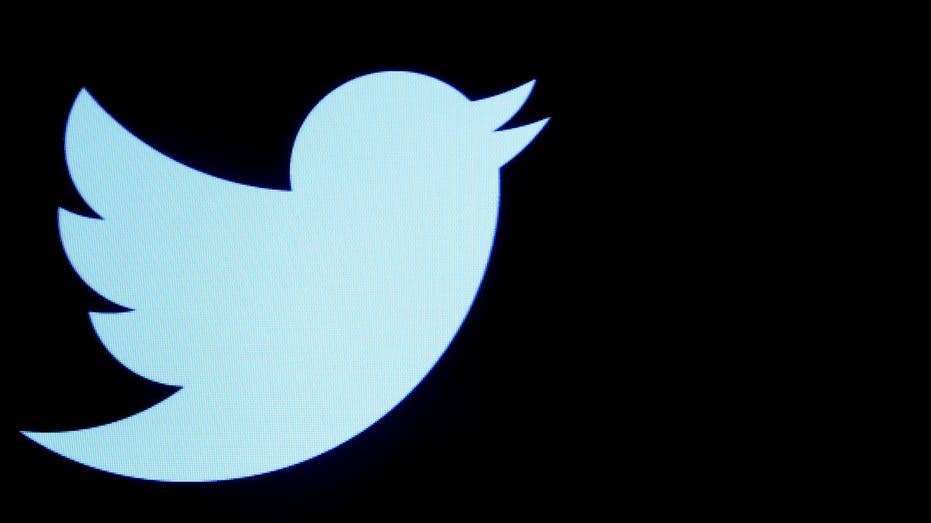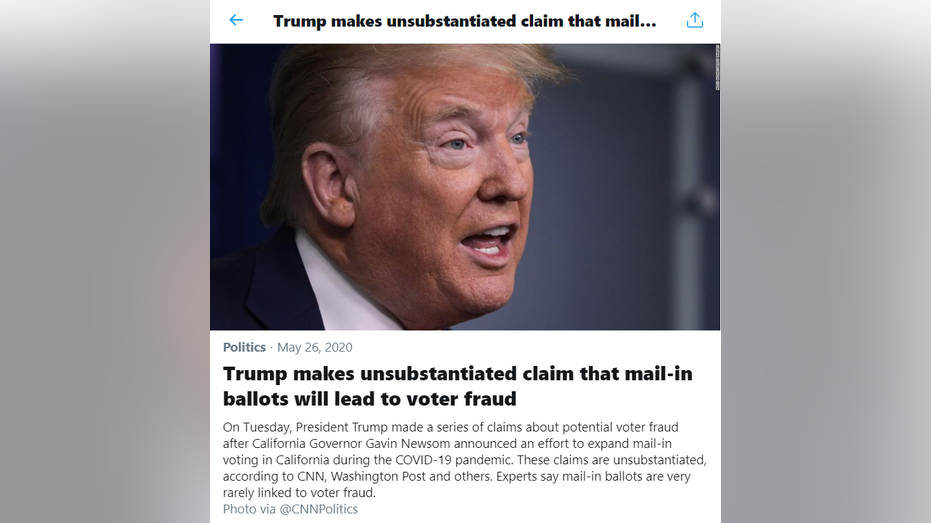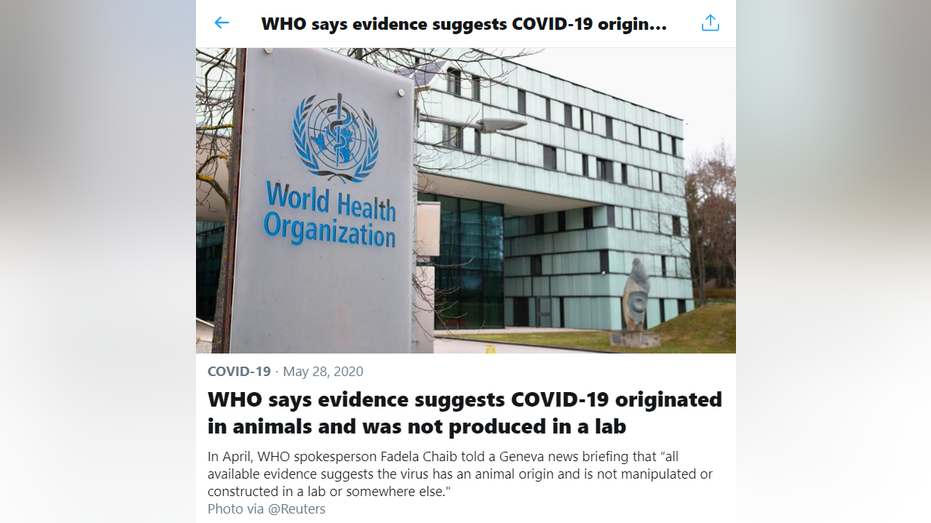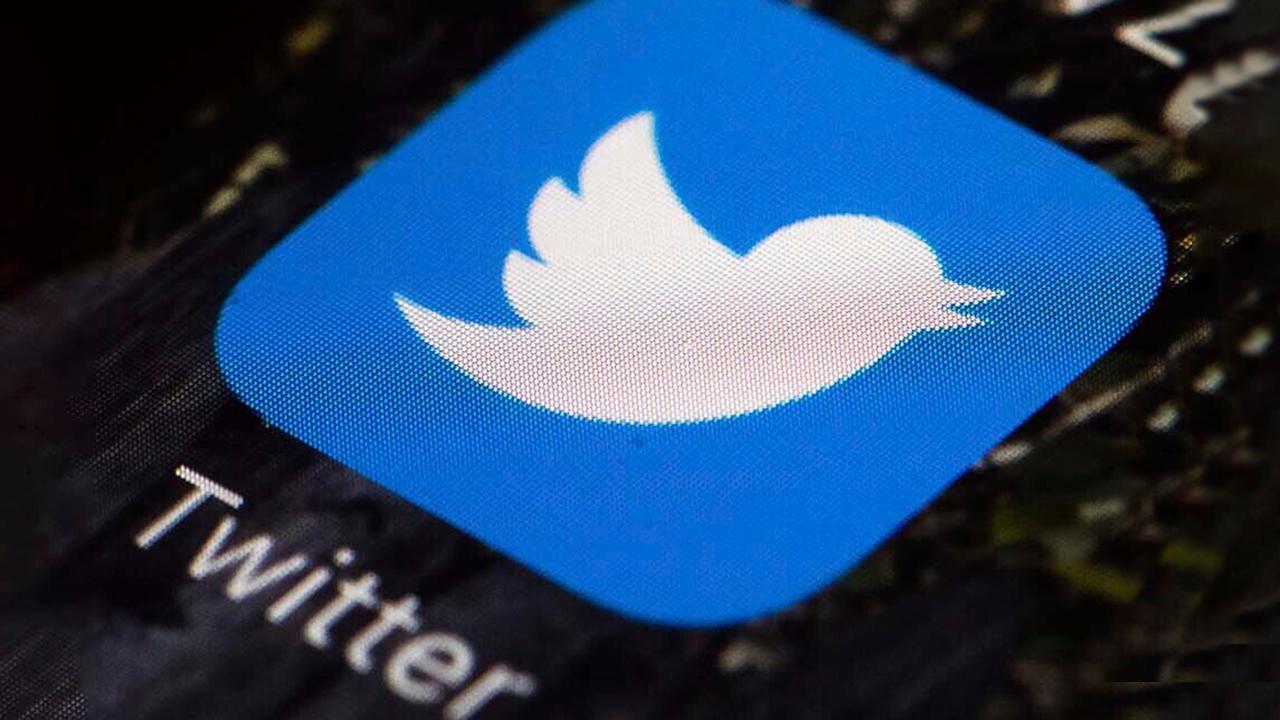Politicians Twitter has fact-checked
Fact-checks offer an alternative to removing tweets posted by prominent figures
Twitter implemented its new fact-check label on May 11, but so far, tweets from only two politicians have received the label that reads, "Get the facts about [subject]!" beneath posts that the company deems misleading.
The label is part of Twitter's approach to misleading information. The tech giant said in an October blog post that in "cases involving a world leader," the company "will err on the side of leaving the content up if there is a clear public interest in doing so," even if it is misleading.
The fact-check label represents an alternative to removing posts from prominent users: It allows other users to read tweets that Twitter determines to be misleading while also providing those users with more information related to such posts that come from third-party news organizations and fact-checkers.

The Twitter logo is displayed on a screen on the floor of the New York Stock Exchange in New York City. (REUTERS/Brendan McDermid)
President Trump and Chinese foreign ministry spokesperson Lijian Zhao are the only two prominent politicians that have received the new fact-check label.
TWITTER HIRES TOP FBI LAWYER INVOLVED IN TRUMP CAMPAIGN INVESTIGATION
The social media giant tagged one of the president's tweets about mail-in ballot fraud with a fact-check label that was widely criticized by Trump supporters and others who pointed out that the fact check only included information from left-leaning news outlets.
"There is NO WAY (ZERO!) that Mail-In Ballots will be anything less than substantially fraudulent. Mail boxes will be robbed, ballots will be forged & even illegally printed out & fraudulently signed," Trump tweeted on May 26.
Twitter's fact-check label leads to a separate Twitter page that says Trump's claims about mail-in ballots "are unsubstantiated, according to CNN, Washington Post and others," adding that "experts say mail-in ballots are very rarely linked to voter fraud."

Trump Twitter fact check page (Twitter)
Twitter added the fact-check label to one of Lijian's tweets blaming the U.S. Army for initially spreading the novel coronavirus, which originated in Wuhan, China. The tweet included a video of an exchange between Centers for Disease Control and Prevention Director Robert Redfield and Rep. Harley Rouda, D-Calif. Redfield, while answering a question from Rouda, suggests that there may have been COVID-19 patients in the U.S. before the first confirmed case was reported in January.
SOCIAL MEDIA COMPANIES DISTRUSTED BY MOST AMERICANS ON CONTENT DECISIONS: POLL
"CDC was caught on the spot. When did patient zero begin in US? How many people are infected? What are the names of the hospitals? It might be US army who brought the epidemic to Wuhan. Be transparent! Make public your data! US owe us an explanation!" he wrote on March 12.
Twitter's fact-check label on Lijian's tweet leads to information from the World Health Organization that says COVID-19 likely originated in animals in China, rather than in a U.S. military lab.
FACEBOOK WON'T LABEL TRUMP'S 'MAIL-IN BALLOT' POST

Chinese foreign ministry fact-check (Twitter)
Twitter also labeled one of the president's May 29 tweets as "glorifying violence." It is unclear whether the social media company has labeled any other posts from prominent politicians as glorifying violence.
GET FOX BUSINESS ON THE GO BY CLICKING HERE
Sen. Ted Cruz, R-Texas, called on the Justice Department in a May 29 letter to investigate Twitter for violating U.S. sanctions against Iran by allowing Iranian militants to post violent tweets on the site.
"Twitter sent a letter back saying their company policy was to allow as much discussion as possible, and they apparently believe [the militants] are exempt from the criminal laws of this country," Cruz told FOX Business' “Varney & Co.” at the time. “So today, I asked the Department of Justice to open an investigation. Those sanction laws are designed to stop U.S. companies from facilitating Iranian terror."
Twitter's labeling policies have opened up a new conversation about Section 230 of the Communications Decency Act, which offers protections to internet firms and social media platforms that edit user content "in good faith."
CLICK HERE TO READ MORE ON FOX BUSINESS




















